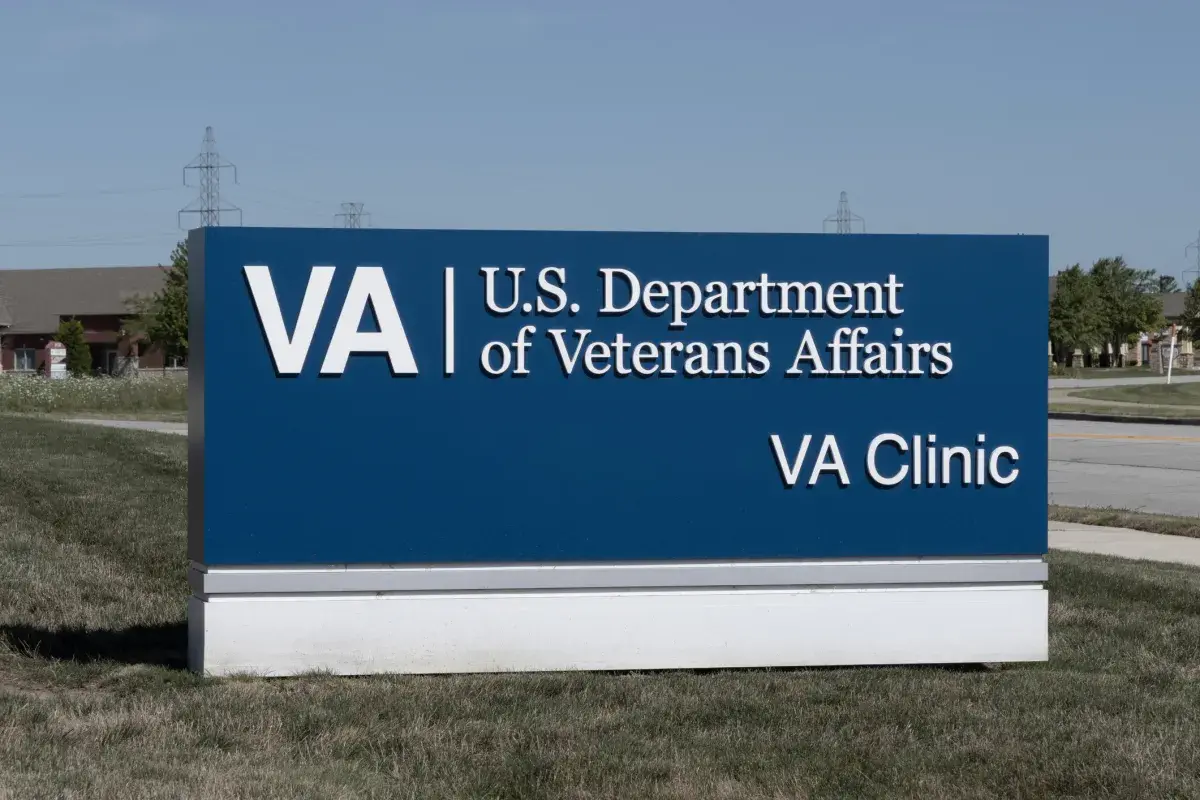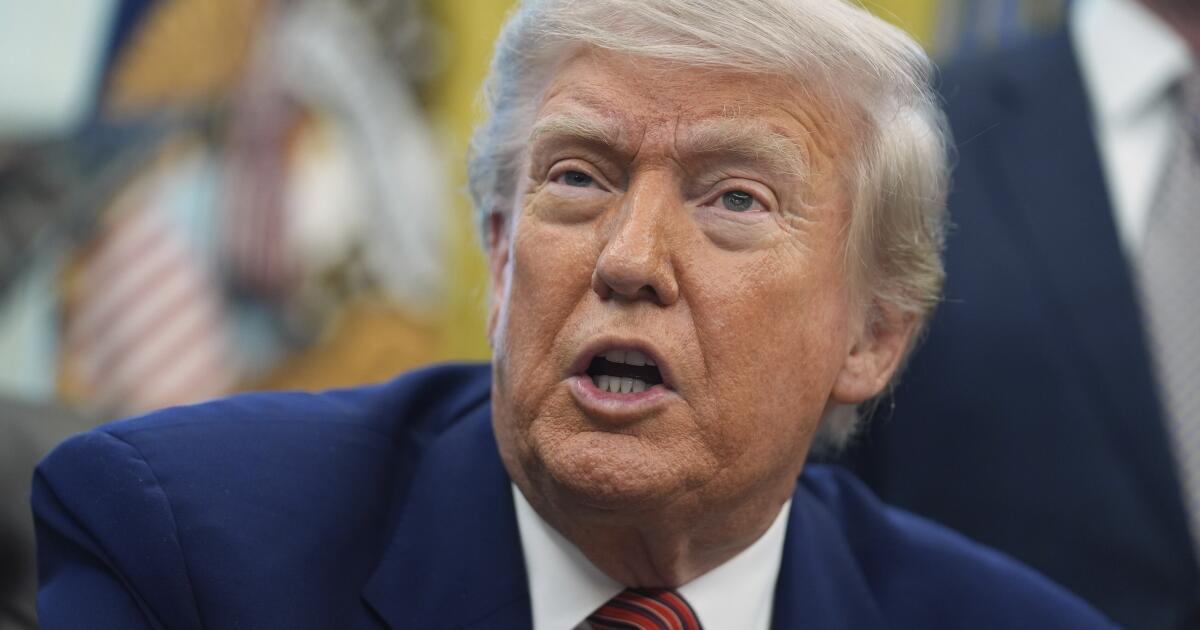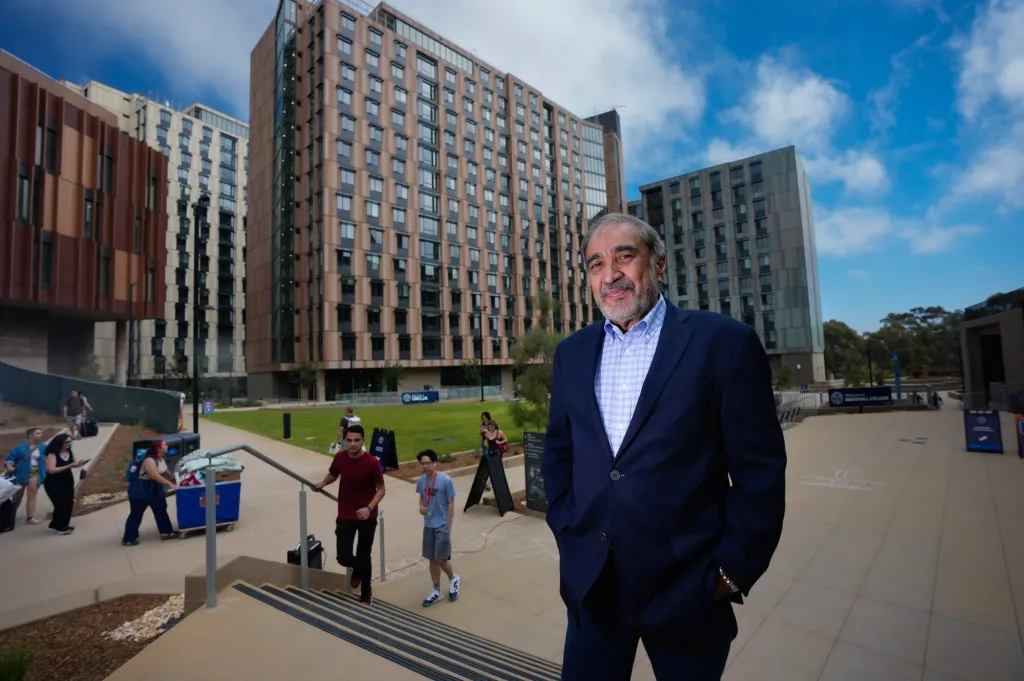
A group of current and former Veterans Affairs (VA) physicians have signed a letter raising “urgent concerns” about Trump administration health care policies that could “negatively affect the lives of all veterans.”
In the letter to congressional leaders, VA Secretary Doug Collins, and the agency’s inspector general, more than 160 signatories warned about “proposed policies which, in addition to ones already enacted, will undermine VA’s health care system, overwhelm VA’s budget, and negatively affect the lives of all veterans.”
The letter was signed by 69 active VA physicians, along with about 100 others, including former VA doctors as well as current and former researchers, psychologists, and physical and occupational therapists.
Newsweek has contacted the VA for comment via email outside of regular working hours.
Why It Matters
The Veterans Health Administration (VHA) operates 1,380 health care facilities nationwide, including 170 medical centers and almost 1,200 outpatient clinics, serving more than 9 million enrolled veterans.
What To Know
The letter presents “three core concerns” physicians have regarding veteran health care. The groups warned that workforce reductions are being implemented without clear objectives or assessments of how they will affect veterans’ access to care. They also raised concerns about administrative overreach into clinical decisions that should remain between veterans and their doctors, guided by evidence, ethics, and science.
They also cautioned that the rapid expansion of community care risks diverting resources away from the VA’s direct care system and undermining veterans’ earned benefits. In the VA system, community care refers to medical services provided to veterans outside of VA facilities, through private doctors, hospitals, and clinics that contract with the VA.
While they acknowledged the important role community care can play, they stressed that policy and funding choices must prioritize veterans’ needs rather than cater to vendor or market pressures.
If these actions continue, the letter said VA “facilities may be forced to close, and veterans may be forced into costlier, often overburdened community health systems ill-equipped to meet their specialized needs.”
Proposals
The letter urges Congress to rein in community care spending by holding funding at 2025 levels. Prescriptions should be routed through VA’s own cost-effective systems, and community care providers must meet the same wait-time standards as VA. They also recommend amending bills that expand privatization, warning that unregulated community mental health programs could drain VA resources and degrade care.
The group also stresses the urgent need to restore staffing, replacing 30,000 lost positions—including doctors, nurses, and social workers—and reversing HR changes that slowed hiring. They oppose reorganizations that eliminate oversight structures and urge Congress to reject proposed $12 billion cuts to the Veterans Health Administration’s direct care budget, which the budget proposes be spent on community care, according to the letter.
Finally, they call for health care decisions to be guided by clinicians and evidence, not politics. That includes confirming a qualified undersecretary of health, restoring staff self-governance, keeping protocols evidence-based, and protecting VA research independence from administrative interference.
VA press secretary Peter Kasperowicz told the Guardian in response to the letter that the “VA is serving veterans much better under the Trump administration than it was under the Biden administration, and the numbers prove it.”
Recent Changes At The VA
Under the Trump administration, the VA has undergone major staffing changes like numerous other government departments. The agency has confirmed it plans to cut 30,000 staff members by end of the 2025 fiscal year on September 30, having reduced staffing levels by 17,000 between January and June.
In August, the VA’s inspector general found the agency faced “severe” staffing shortages at all its hospitals.
The department also recently announced an increase in spending on health facility upgrades. An additional $800 million will be directed to the Veterans Health Administration’s Non-Recurring Maintenance program this fiscal year, part of a broader effort to modernize infrastructure, the agency announced in July.
The VA also introduced operational changes and service updates this year, including a policy change to remove a second‑physician review for referrals to community care, which the department said would speed access to community providers.



